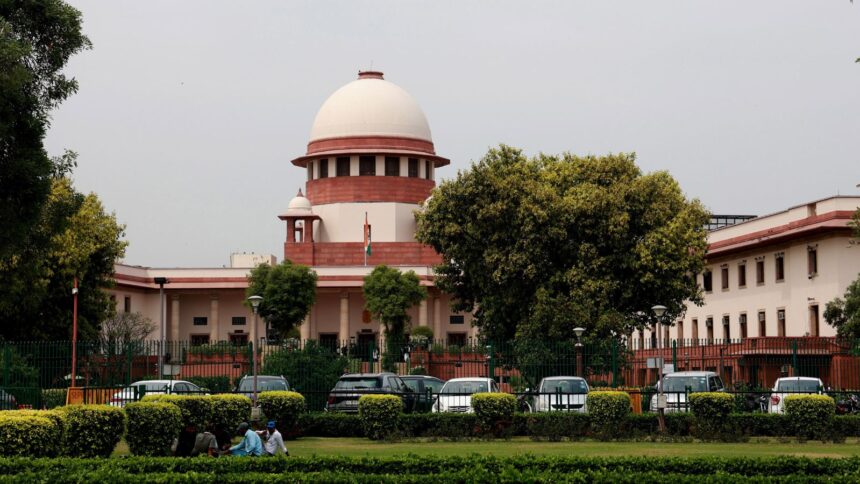Solicitor General Tushar Mehta Tuesday told the Supreme Court, which began hearing the challenge against the amendments to the Waqf Act, that “waqf, by its very nature, is a secular concept” and that the law does not touch upon any essential religious practices of Muslims.
“It may be noted that Waqf, by its very nature, is a secular concept. This is so since waqf merely means dedication of property,” Mehta stated in a 145-page note submitted to the Court.
A bench comprising Chief Justice of India B R Gavai and Justice Augustine G Masih that began hearing the batch of petitions seeking an interim stay on the amendments observed that “a very strong and glaring case” is needed to pause the operation of the law.
“There is a presumption of constitutionality in favour of every statute. For interim relief, you have to make out a very strong and glaring case. Otherwise, presumption of constitutionality will be there,” CJI Gavai observed.
Solicitor General Mehta is expected to be heard Wednesday before the Court passes orders on the limited issue of interim stay.
“The elements of charity or religious dedication of property are common across all religions and specifically held by this Hon’ble Court to be a ‘purely secular exercise’. The fundamental purpose of the is to confer statutory validity upon dedications while imposing certain duties and responsibilities. It is always open to Parliament to alter the statutory framework which conferred statutory validity to such dedications,” the note stated.
Mehta quoted the 2003 Supreme Court ruling in John Vallamattom v Union Of India in which a Christian priest had challenged portions of the Indian Succession Act that placed certain conditions on Christians while bequeathing property to religious or charitable uses.
Mehta’s note also offers a clarification that de-recognition of the concept of “waqf by user” will be “prospective in nature.”
“The proviso (in the amended provision) ensures that any waqf, which was registered before the concerned authorities, would be protected.”
The government has argued that the Mussalman Wakf Act, 1923 and every subsequent legislation on the issue mandated the registration of every and that the 2025 law merely de-recognises any such waqf that has not been registered.
However, the petitioners have argued that the 1923 Act or subsequent laws did not carry any consequences for failing to register which is why several waqf-by-user properties remain unregistered.
“It is thus clear that those waqfs which have not registered themselves (including ‘waqfs by user’) since 1923, 1954, or at least prior to 01.01.1996 (date on which Act of 1995 came in force) nor have they been found to be in existence during the survey by the Survey Commissioner and an independent exercise mandated by law from the State Waqf Board (as explained above) and have no legal existence and any belated claim at this stage is not maintainable. This legislative policy in the proviso, therefore, has a rationale and is not arbitrary,” Mehta’s note stated.








